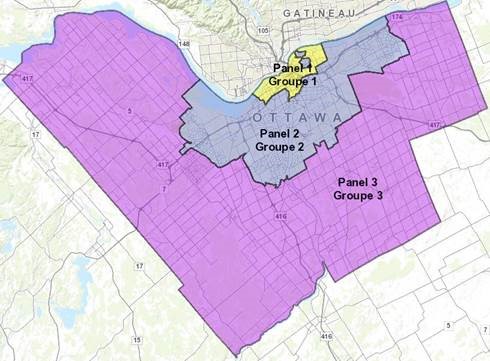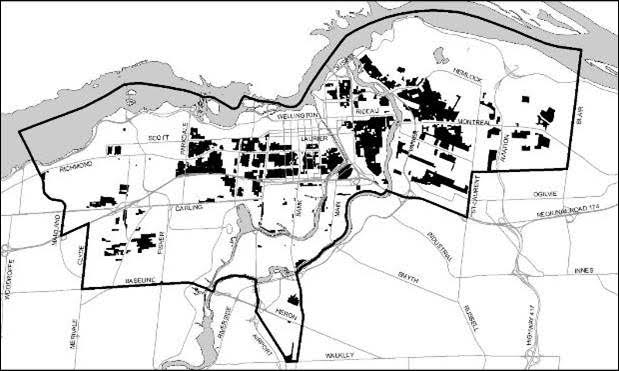Bay Ward Councillor Theresa Kavanaugh has asked community associations to share the following information from the Ottawa Public Health Agency and City of Ottawa:
On Wednesday, March 25th, the City of Ottawa declared a state of emergency in dealing with the global COVID-19 pandemic.
We are making efforts to flatten the curve and ensure that this virus is not able to spread by following strong health protocols. The global pandemic is creating havoc around the world and we in Canada are not safe. We need to remain vigilant in following strict health protocols of physical distancing and hygiene, particularly hand washing, as stated by Ottawa Public Health and Health Canada. The City is taking strong measures to help prevent the spread of this virus.
It is important to recognize that the COVID-19 situation is evolving very quickly. Please refer to OttawaPublicHealth.ca/Coronavirus to stay up-to-date on the latest information.
For information relevant to businesses and workplaces, please visit: https://www.ottawapublichealth.ca/workplacecovid19
Physical (Social) Distancing
Ottawa Public Health is urging everyone to practice physical (social) distancing. More information on physical (social) distancing for you and your family can be found on our website.
The province of Ontario is ordering non-essential workplaces to close-down as of Tuesday March 24, 2020 at 11:59 p.m. Further details can be found on the OPH website for workplaces.
Our efforts are needed as a community. The actions you take will affect not only you but your loved ones and our community’s most vulnerable residents. While we appreciate that people are thinking of their loved ones, now is not the time to visit them in person. Luckily, we have technology on our side, which enables us to communicate in other creative ways like video chats and group phone calls.
Physical (social) distancing by all is IMPERATIVE to limit transmission in the community, to protect older adults, vulnerable populations and outbreaks in institutions. We must “flatten the curve” so we don’t see spikes in cases. This means that we want to slow down transmission of the virus and reduce the number of cases in the community that happen at the same time, so that our health system continues to work properly. Here are some ways that you and your family can practise physical (social) distancing:
- Talk to your supervisor, manager, or employer about the possibility of working from home where possible.
- Avoid visiting elderly friends or relatives. Use the telephone, video chats or social media to stay connected unless the visit is absolutely essential.
- Avoid all non-essential trips outside your home.
- Keep the windows down if you have to go into the community for an essential trip via taxi or rideshare.
- Cancel group gatherings and limit your contact to those within your home.
- Hold virtual meetings or get-togethers.
- Spend time outside and in settings where people can maintain a two-metre (six feet) distance from each other.
- Take precautions to maintain distance in shared spaces in multi-unit dwellings;
- Avoid crowded elevators (wait for an empty one if you can).
- Avoid using the mail room or laundry room at the same time as other residents (keep to a small number at a time to maintain distance).
Physical (social) distancing does not mean emotional distancing. Check in with others by phone or other technology. Check in with yourself. It’s ok not to be ok. Please know that help is available, and we encourage you to reach out to Distress Centre of Ottawa to connect with someone at 613-238-3311 if needed.
Self-Isolation
Many people are returning home from March Break or winter travel and will need groceries and essential items. It is imperative that all returning travellers self-isolate for 14 days, so groceries and essential items should be picked up by a family member or friend, or through on-line ordering options. Visit our website for further guidance on self-isolation. We have been working with the Ottawa International Airport to ensure this is being communicated clearly to returning travellers.
You also need to self-isolate if you live with, provided care for, or spent extensive time with someone who has tested positive for COVID-19, OR is suspected to have COVID-19, OR who has respiratory symptoms (fever, cough, or shortness of breath) that started within 14 days of travel outside of Canada.
Human Needs Taskforce
Our community partners are working together through the City’s Human Needs Task Force for those requiring assistance. The task force is receiving, assessing and triaging all social and human needs inquiries, while mobilizing and supporting community organizations to address urgent community needs. The Human Needs Task Force aligns internal city resources, external partners, existing funding and new funding to community need.
Outreach to Isolated Seniors
- The Good Companions’ Seniors Centre Without Walls has expanded its services with a focus on outreach to vulnerable and isolated seniors and other populations. Emotional and practical support is provided via telephone. In addition, they have trained 20 agencies (32 staff) to do similar outreach calls through various programs.
- Rural Ottawa Support Services is working with Good Companions to provide similar telephone outreach and practical supports to isolated seniors through their A Friendly Voice program, which does wellness calls connecting seniors to local services and programs.
- Ottawa Community Housing has facilitated wellness check phone calls to approximately 2,700 residents, focusing on people identified on the Fire Evacuation List.
Food Security
- Ottawa Food Bank is supporting the emergency food centres and are coordinating with other task force members to sort and deliver food where needed. Demand has increased by 30 per cent across community food banks. They are working with the Salvation Army to support distribution of food hampers offered by local restauranteurs. The City is providing facility space for safe storage of food hampers.
- Meals on Wheels has been increasing offers of frozen food for seniors in the Ottawa area and connecting with Ottawa Food Bank to provide hamper supplies and deliveries. Since the COVID-19 pandemic, they are delivering 100 fresh and 700 frozen meals daily. These services have ensured a supply of full dinners for those individuals in need.
Urgent Transportation
- Working with other non-profit organizations, the Good Companions and Champlain Community Support Network are coordinating urgent transportation to medical appointments, assessment centres, and food centres/grocery stores for those with financial constraints, transportation difficulties, and/or health and mobility issues.
- Services can be accessed by contacting Good Companions website or by telephone at 613-236-0428.
Volunteer Coordination
- The City and United Way of Eastern Ontario are developing a plan to support volunteer coordination during the COVID-19 pandemic. Volunteer Ottawa has established a pool of pre-screened volunteers and will continue to accept new applicants.
Stay Updated
Information is changing rapidly and Ottawa Public Health is working around the clock to provide information to the public as soon as possible.
Please share this information and receive the latest updates by:
- Visiting OttawaPublicHealth.ca/Coronavirus frequently
- Follow us on Twitter: twitter.com/ottawahealth
- Like us on Facebook: facebook.com/ottawahealth
Reduce the spread of germs including the flu and COVID-19
- Wash your hands often with soap and water, or use hand sanitizer.
- Avoid touching your eyes, nose, and mouth unless you have just cleaned your hands.
- Cover your cough and sneeze with a tissue or into your arm, not your hand.
- Stay home if you are sick.



